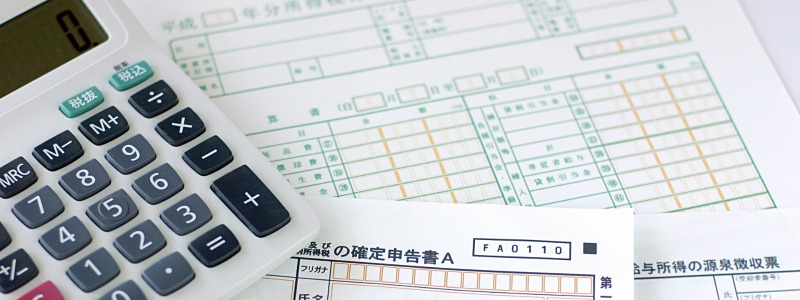Application Acceptance Period: by 15th Mar. 2023
February and March in Japan is tax season, when all residents receive a kakutei shinkoku (確定申告) tax return form from their local tax office. The two main forms of tax are income tax shotokuzei (所得税, income tax) and jūminzei (住民税, residence tax). The rates you pay for both kinds of tax are calculated according to your earnings.
Company employees will have their earnings reported to the tax office by their employers. For those who have no forms of income other than salary, it is not usually necessary (with some exceptions, see below) to fill in the tax return form. Others, including freelance workers, the self-employed and those earning wages from more than one company, should complete the form and return it to the tax office. Anyone who bought a house, has a loan, or who had earnings of over ¥200,000 from a source other than salary, should also complete the form. The form refers to earnings and expenses for the previous calendar year, from January 1st to December 31st. In addition to calculating your taxable income, the form will be used to determine the rates you pay for residence tax and health insurance.
By filing the tax return, certain individuals who overpaid in tax may qualify for a rebate. Examples include those who changed jobs or had a period of unemployment during the previous year, paid over ¥100,000 in medical fees, made charitable donations or who suffered losses as a result of an accident or crime.
Those who are self-employed or gain the majority of their income through freelance work may find it advantageous to request a special blue form (aoiro shinkoku (青色申告)) which allows for special deductions, such as for rent and utilities if they work from home. If in doubt about the kind of return you should use, check with a financial expert or inquire at the tax office for your area.
Tax forms should be returned to the tax office by the 15th March. Penalties may be incurred for late submission. Many local authorities offer English instructions for filling in the form, and may have an English language version of the form itself. Check with your local ward or city office to see what services are available for foreign residents.
The Tokyo Bureau of Taxation also offers consultation in English on matters related to tax.
